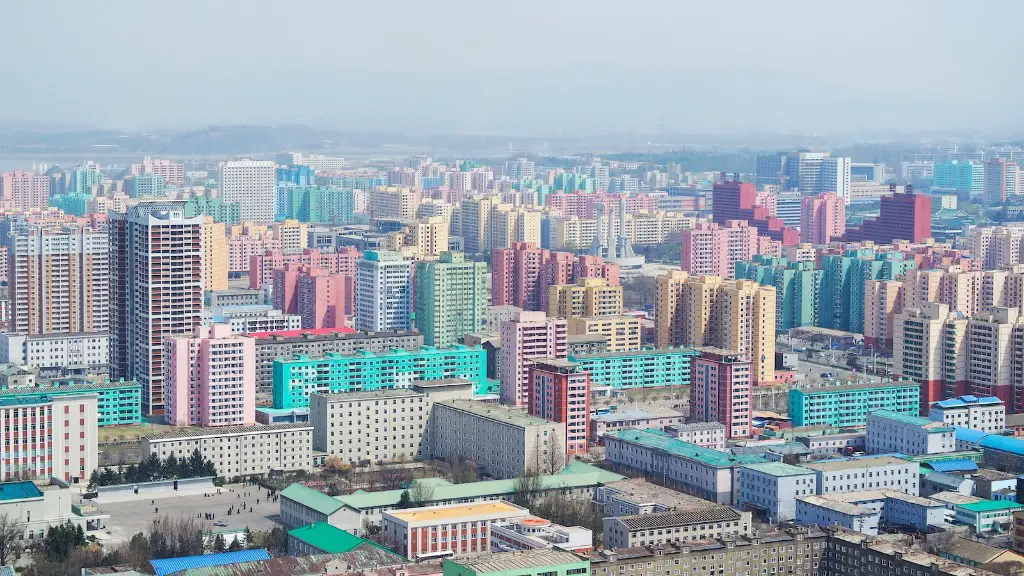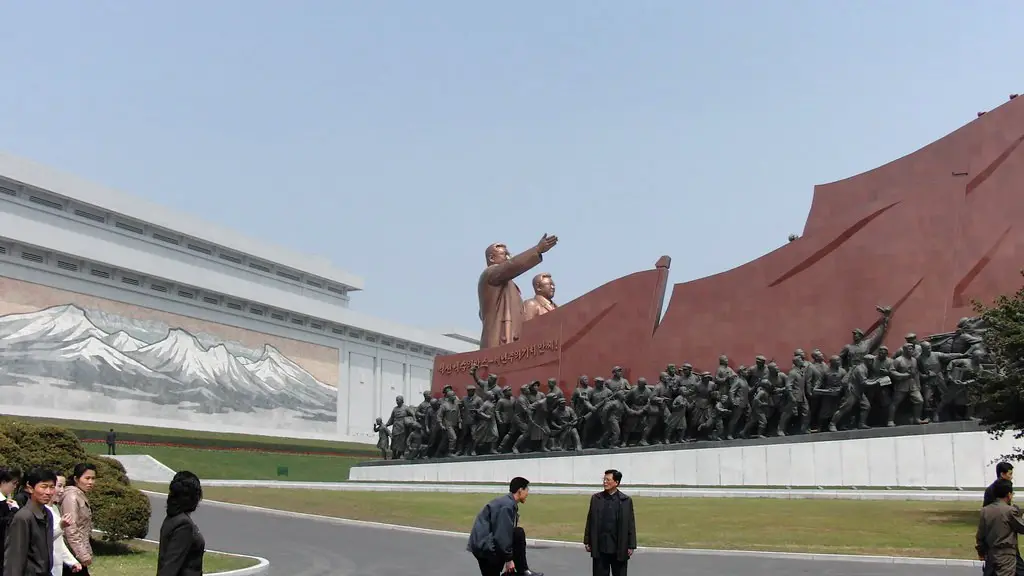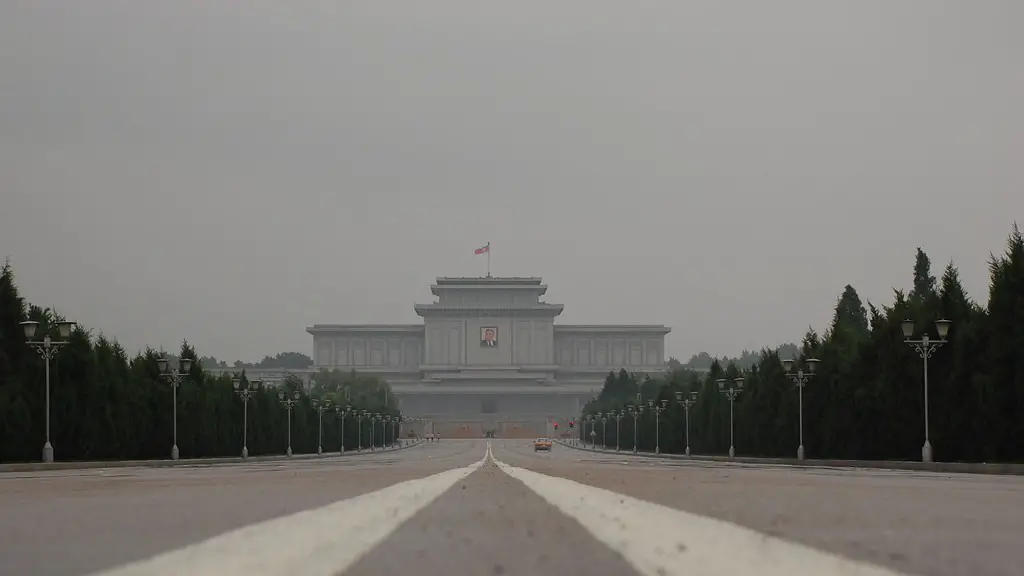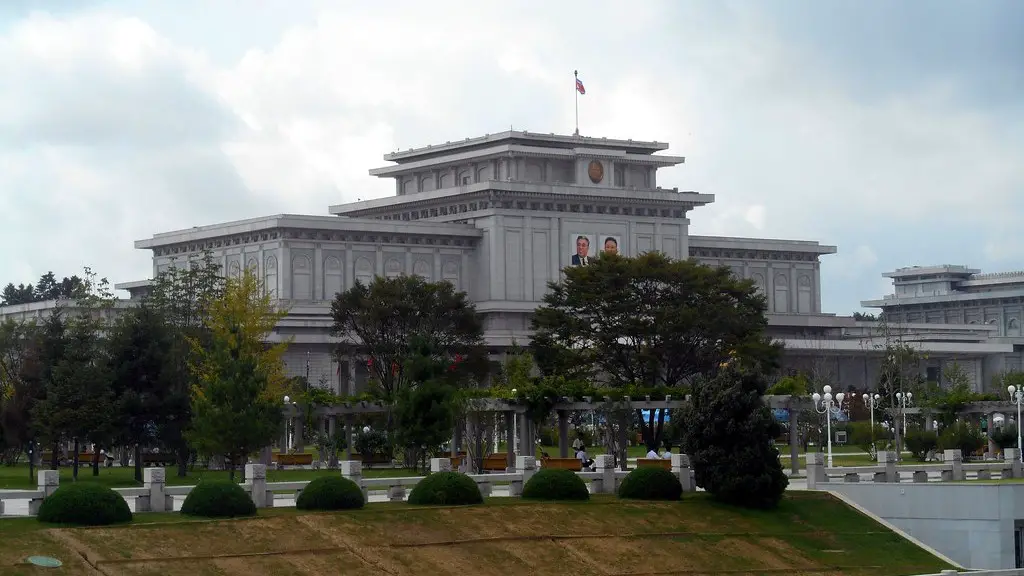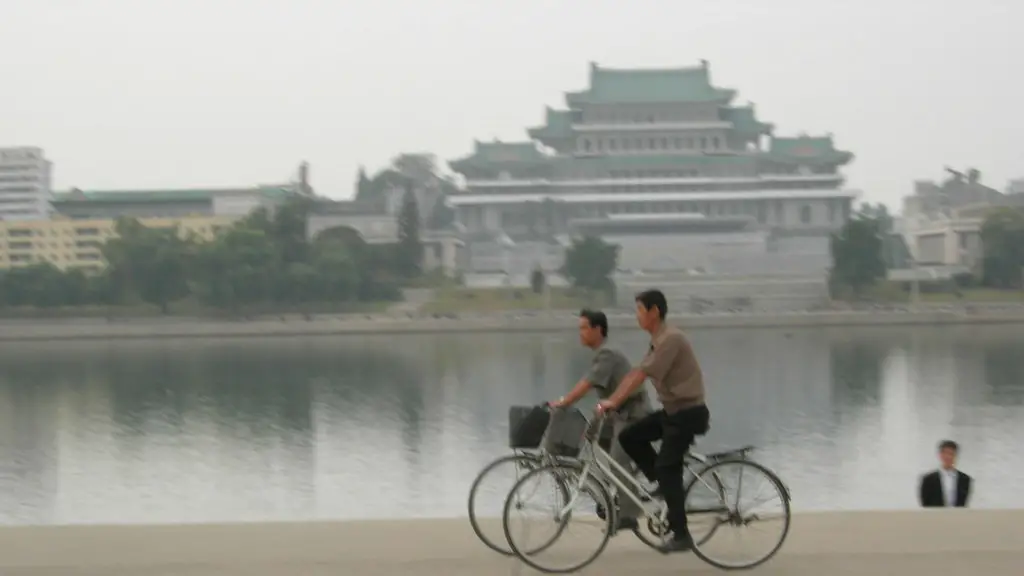North Korea, officially the Democratic People’s Republic of Korea, is a country in East Asia. It is bordered by China to the north, and by South Korea to the south. North Korea covers an area of 120,540 square kilometers and has a population of about 25 million. The capital and largest city is Pyongyang.
The hermit kingdom of North Korea is one of the most isolated and secretive countries in the world. It is also one of the most impoverished, with a GNP per capita of just $1,000. Despite its poverty, North Korea has developed a number of weapons of mass destruction, including nuclear bombs. It is also thought to have a secret chemical and biological weapons program. In addition, North Korea is believed to have a large army, with over 1 million soldiers.
What is North Korea well known for?
The Democratic People’s Republic of Korea is a highly centralised totalitarian state. Despite being one of the poorest countries in the world, it maintains one of the largest militaries and devotes significant resources to its illicit nuclear weapons and ballistic missile programs. The DPRK is a highly militarised society, and the ruling Workers’ Party of Korea propagates the idea of the “revolutionary armed forces” as the vanguard of the revolution. The country has a large standing army, as well as a reserve force and a paramilitary organisation. The Korean People’s Army is organised into Ground, Naval, Air and Special Forces branches, and has a strength of around 1.2 million active personnel. The country also has a large reserve force, estimated at around 7.7 million personnel. The Korean People’s Army is equipped with a variety of modern weapons, including tanks, artillery, missiles, and small arms. The DPRK also has a significant ballistic missile program, and is believed to possess a small number of nuclear weapons.
North Korea is not as isolated as people think. The country has diplomatic relations with 164 independent states. North Korea also has bilateral relations with the State of Palestine, the Sahrawi Arab Democratic Republic, and the European Union.
What is North Korea’s main resource
North Korea is a mineral-rich country. While coal and iron comprise the largest deposits, the country is believed to have reserves of more than 200 mineral types, including zinc, gold, copper, magnetite, tungsten, graphite, and lead, as well as non-metallic minerals, such as magnesite and limestone. The reserves are largely untapped due to the country’s isolation and lack of investment, but could be a significant source of revenue if developed.
North Korea is rich in natural resources, including iron ore, coal, gold, magnesite, lead, and zinc. The country has great potential for further development of its mineral resources. However, due to the current political situation, North Korea’s mining sector is underdeveloped and faces significant challenges.
Who are North Korea’s allies?
The treaty states that if one country is attacked, the other will come to its aid. This mutual defense agreement has been in place since 1961, and was recently renewed in 2014. China is North Korea’s only real ally, and the two countries have a close special relationship. China is often considered to be North Korea’s closest ally.
The economy of North Korea is a centrally planned system, where the role of market allocation is limited. Agriculture, light industry, and fishing are the primary economic activities. Mineral resources are also relatively abundant. However, the country faces significant economic challenges, including a high level of poverty and hunger, as well as a lack of infrastructure.
Which countries don’t recognize North Korea?
North Korea is not recognized as a country by 7 UN members states, 1 UN observer, and 1 non-UN member.
The US Department of State continues to warn against travel to North Korea due to the serious risk of arrest and long-term detention of US citizens. They also advise to exercise increased caution due to the critical threat of wrongful detention.
What is not allowed in North Korea
North Korea is a country with very strict laws about what you can bring into the country. It is illegal to bring in religious, pornographic or political items. All published material and electronic devices must be declared when you arrive. It is also illegal to knowingly or unknowingly possess items that breach North Korean law.
In the long-term, the North Korea Exports is projected to trend around 162437 USD Million in 2023 and 164146 USD Million in 2024, according to our econometric models. North Korea exports mainly commodities like coal and iron ore and textiles. China is the main trading partner.
What is North Korea’s most valuable resource?
North Korea’s extensive mineral deposits have been estimated to be worth around $6 trillion. These deposits include iron ore, coal, gold, magnesite, lead, and zinc. Although the country has placed greater emphasis on extracting gold and other precious metals in recent years, iron ore and coal are still the most important minerals in terms of economic value.
North Korea’s major natural resources are coal, copper, fluorspar, gold, graphite, iron ore, lead, magnesite, pyrites, salt, tungsten, and zinc. Water is an important source of hydroelectric power generation. These resources are found throughout the country, but the richest deposits are in the north and northeast.
Where does North Korea make money
The North Korean economy is one of the most isolated in the world. This is largely due to the country’s decision to stay closed off from the rest of the world. However, North Korea does have some potential sources of income. The major sources of revenue for North Korea include coal, textiles, drugs, weapons and seafood. North Korea also earns income from tourism, but this is generally limited to wealthy foreigners who are interested in seeing the country’s unique political system.
There has been little progress towards denuclearization, and in 2022, North Korea effectively declared itself a nuclear state. After decades of financial mismanagement, relative autarky, and resource misallocation, the DPRK has faced chronic economic problems and food shortages since the mid-1990s.
Do North Koreans get paid?
The North Korean government requires that all workers be paid in North Korean currency, minus the value of insurance taxes and socio-cultural fees. This means that workers are subject to indirect taxation, as their wages are paid in hard currencies by foreign companies to the North Korean government.
Pakistan and China have had a strong relationship for many years. The two countries have praised each other and have been there for each other when needed. President Pervez Musharraf has referred to China as Pakistan’s “time-tested and all-weather friend”, while in return Chinese leader Hu Jintao has referred to Pakistan as “a good friend and partner”. The relationship between the two countries is strong and is getting stronger every day.
Final Words
North Korea is a sovereign state in East Asia, located on the northern half of the Korean Peninsula. It is bordered by China to the north and Russia to the northeast. Pyongyang is the country’s capital and largest city. North Korea has an area of 120,540 square kilometers and a population of 25 million.
In conclusion, North Korea contributes to the world by providing a cautionary tale of what can happen when a government is isolationist and repressive. North Korea is also a reminder that even in the 21st century, there are still places where people suffer from lack of basic freedoms and rights.

